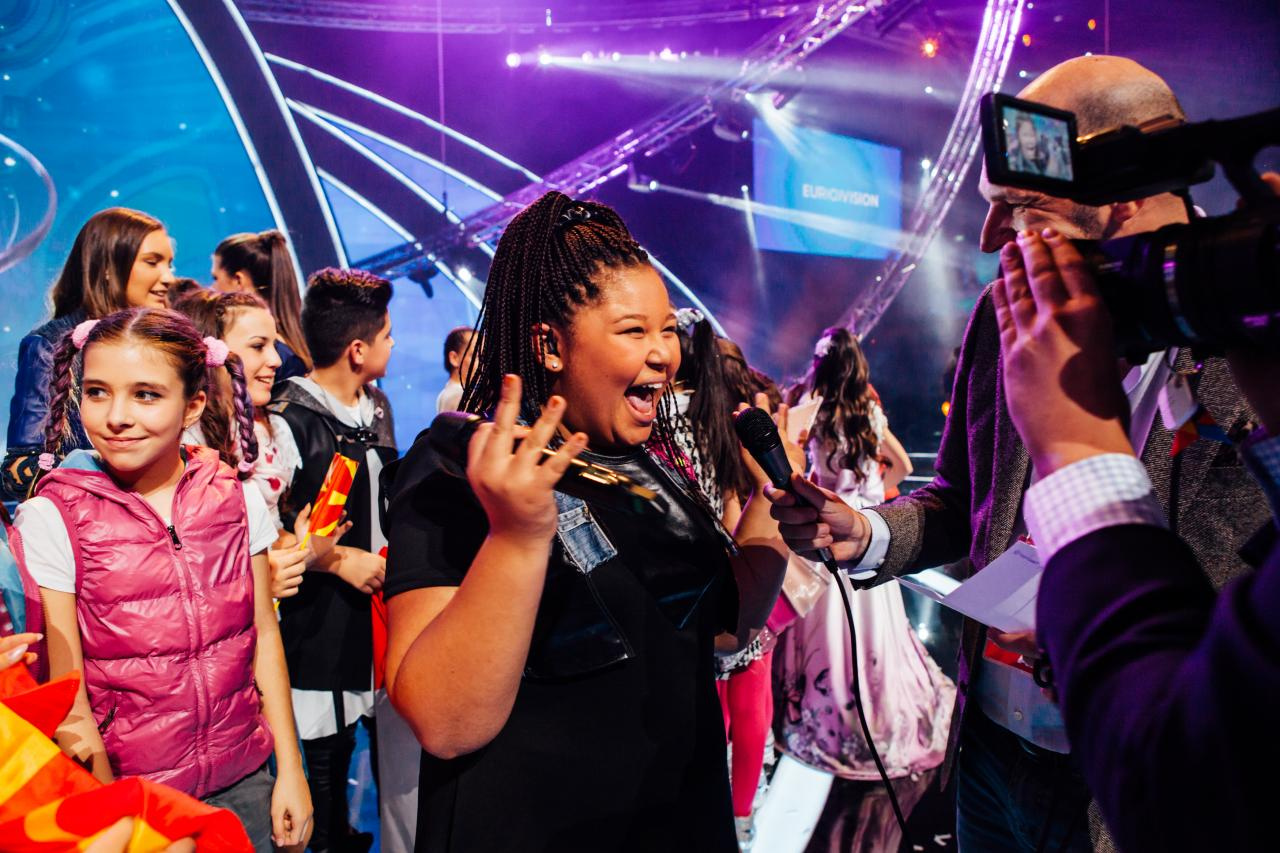
What does it take to win Junior Eurovision?
22 September 2016 at 16:00 CESTCroatia's Dino won the very first Junior Eurovision Song Contest in 2003 with Ti si moja prva ljubav (You are my first love) a catchy mid-tempo track, beating off strong competition from Spain. The following year María Isabel from Spain won the competition with an energic performance of her song, Antes muerta que sencilla (I'd rather be dead than plain).
Belarus triumphed in 2005 with My vmeste (We are together) performed by Ksenia Sitnik. Russia took the trophy the following year with a jazzy pop number called Vesenniy Jazz (Spring Jazz). The winning duo, the Tolmachevy Sisters, went on to represent Russia in the Eurovision Song Contest in 2014.
In 2007 Belarus became the first country to win the Junior Eurovision Song Contest twice after Alexey Zhigalkovich won with his song S druz'yami (With friends). Alexey travelled to Belgrade to the 2008 Eurovision Song Contest to support the Belarusian singer, Ruslan.
Georgia scored its first victory in the contest in 2008 when Bzikebi won over the public with their catchy entry Bzz. The following year it was the turn of the Netherlands and Ralf with his entry Click Clack. Armenia's Vladimir Arzumanyan added some eastern flavour in 2010 with Mama. The following year Armenia staged the Junior Eurovision Song Contest in Yerevan, becoming the first winning country to host the event the next year.
Georgia did the double in 2011 with the song Candy Music performed by girl group Candy. In 2012 Ukraine scored its first victory in the contest with the haunting ballad Nebo (Sky) by Anastasiya Petryk. Ukraine became the second country to host the contest after winning.
In Kyiv in 2013 Malta took the trophy for the first time with another big ballad, The Start performed by Gaia Cauchi. Malta hosted the competition the following year and Italy triumphed with it's debut entry, Tu primo grande amore by Vincenzo Cantiello. Bulgaria finished second and hosted the 2015 competition in Sofia where Destiny won the competition for Malta for the second time. Destiny's song, Not My Soul, won the hearts of Europe and is the reason why the Junior Eurovision Song Contest will be held in Malta in November this year.
Finding a formula for success
Whether it's a dance routine, memorable costume, catchy song or a big performance, all the winners of the Junior Eurovision Song Contest have had something special. In 2016 juries will be used to select the winner of the Junior Eurovision Song Contest. Previous winners have ranged from ballads to uptempo songs with a catchy chorus.
Unlike the Eurovision Song Contest, where solo female artists have been overwhelmingly successful compared to male artists, the Junior Eurovision Song Contest is a level playing field. Over the years five solo female artists and five solo male artists have triumphed along with three groups (including the Russian duo). In just under two months we will know who will be the winner of the 14th Junior Eurovision Song Contest!
Check out the five most recent winning songs, which one is your favourite?